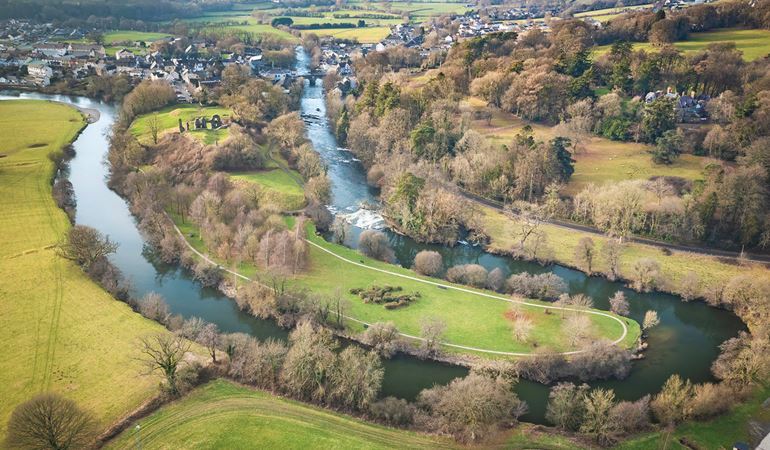New evidence report supports efforts to improve river water quality?

Natural Resources Wales (NRW) has today published a new evidence report about water quality within Special Area of Conservation (SAC) rivers in Wales.
The report complements NRW’s 2021 phosphorus compliance report and looks at compliance against seven additional water quality targets including ammonia.
It focuses on 127 water bodies within the nine SAC river catchments – Cleddau, Eden, Gwyrfai, Teifi, Tywi, Glaslyn, Dee, Usk and Wye – using data collected between 1st January 2017-31st December 2019.
The report shows no failures on the Afon Tywi and Afon Glaslyn and a small number of non-compliances on the River Dee, Afon Eden and Afon Gwyrfai.
More notable failures against targets are recorded on the Afonydd Cleddau, Afon Teifi, River Usk and River Wye. The majority of these relate to targets which are indicators of organic pollution.
The Cleddau was the only SAC which had consistent failures for ammonia.
Rhian Jardine, Head of NRW’s Development Planning Advice Service said:
“Our previous report into phosphorus compliance was considered to be crucial new evidence, and critical for decision makers across Wales.
“Since then, there has been much collaboration between Government, local authorities, regulators and industry and significant progress to reduce the sources of phosphorus entering our rivers.
“Amongst many things, this includes the establishment of Nutrient Management Boards, the introduction of the Control of Agricultural Pollution Regulations, and work to reduce the impact of development on river water quality.
“We expect that these efforts will in turn, also help to reduce some of the other pollutants and indicators of pollution highlighted in today’s report.”
Where areas of concern have been identified, additional investigations and monitoring will be considered.
The consistent ammonia failures in the Cleddau SAC are likely due to a range of pollution sources.
NRW is including wastewater permits within the failing sections of the catchment in our current permit review programme.
Rhian added:
“New evidence is always welcome and will continue to inform our efforts to tackle the many challenges facing our rivers.
“As Wales’s environmental regulator, NRW is committed to play our full part to reduce pollution and improve water quality, and we will continue to collaborate with others to deliver the changes we all want to see in our rivers.”
Following the publication of the report, NRW is working to update its guidance for planning authorities and will publish this shortly.



